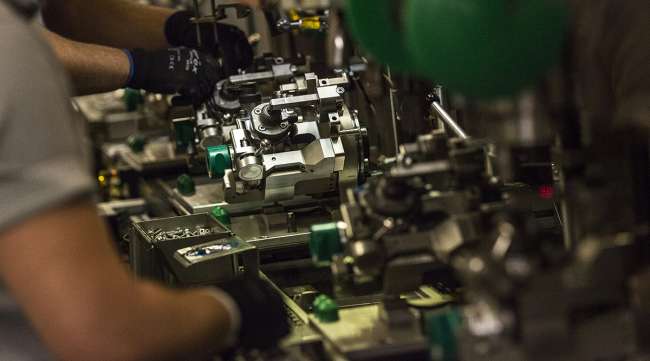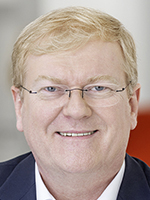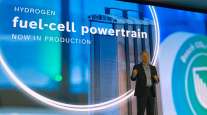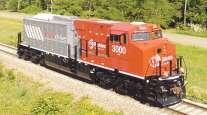Bosch, Powercell Partner to Bring Fuel Cells to Trucks, Cars

Automotive supplier Bosch announced it formed an alliance with Powercell Sweden AB, the Swedish manufacturer of fuel cell stacks. Under the agreement, the partners will work jointly to make the polymer-electrolyte membrane fuel cell ready for production in commercial trucks and cars.
The stack — which is nearly 66% of the cost of a fuel cell system — converts hydrogen into electrical energy. Bosch will manufacture this technology under license for the global automotive market. The stack will complement Bosch’s existing portfolio of fuel cell components and is to be launched in 2022 at the latest, according to the Stuttgart, Germany-based company.
Bosch estimates that as much as 20% of all electric vehicles worldwide will be powered by fuel cells by 2030, and it stated the best opportunities for broad adoption of fuel cell technology are in the commercial vehicle market, then increasingly in passenger cars.

Hartung
“Through commercialization and widespread marketing of this technology, Bosch will achieve economies of scale and push down costs,” Stefan Hartung, chairman of the Bosch mobility solutions business unit, said in a company statement.
The cost of hydrogen also must drop. Currently, the fuel is mainly produced for industrial applications, at a kilogram price that frequently exceeds five euros. One kilogram of hydrogen contains as much energy as about three liters of diesel. For 100 kilometers, a modern 40-ton truck would require seven to eight kilograms of hydrogen, according to the company. As production grows, the price should fall.
The European Union’s fleet requirements for trucks call for a reduction of carbon dioxide emissions by 15% on average by 2025 and 30% by 2030. Bosch’s view is that this target can only be reached by electrifying more of the powertrain. — Transport Topics




